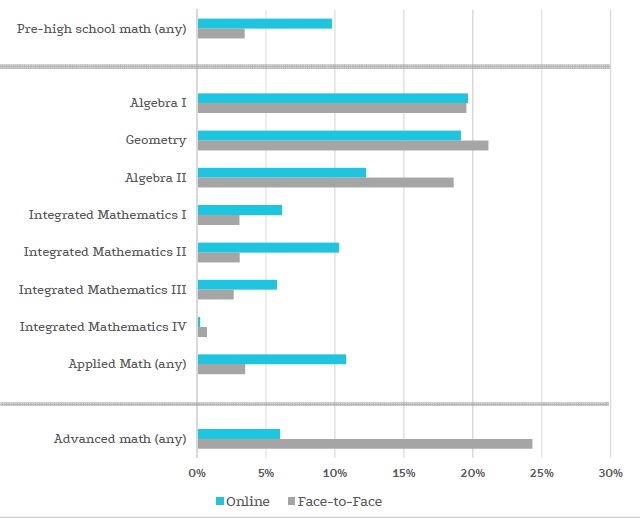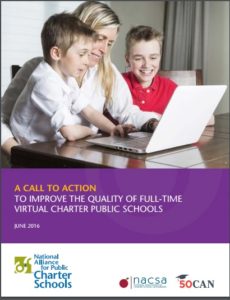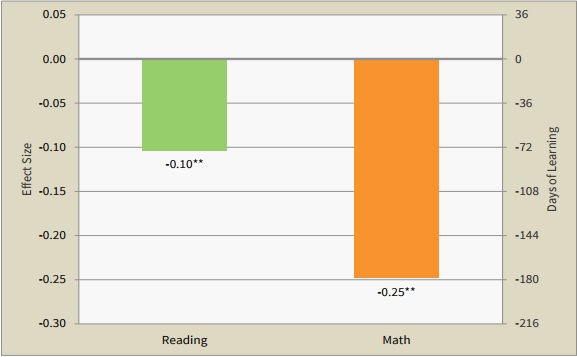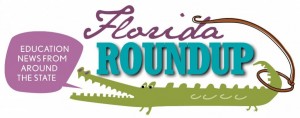
An attorney defending the Oklahoma’s charter school board wasted no time identifying the primary issue before the Oklahoma Supreme Court.
“This is whether the operation of a charter school violates the establishment clause,” said Philip Sechler, representing the Oklahoma Statewide Virtual Charter School Board.
The board’s approval of St. Isidore of Seville Catholic Virtual Charter School last year catalyzed a controversy in the Sooner State that could pave the way for the nation’s first religiously affiliated charter school. That means the case has national ramifications and could reach the U.S. Supreme Court.
The high court sidestepped the issue when it declined last year to review a 2022 appellate court decision that said charter schools were state actors. Other federal circuits have issued conflicting decisions.
Experts have said Oklahoma Attorney General Gentner Drummond’s lawsuit to stop St. Isidore could bring the issue of public schools operated by religious groups back to the nation’s high court to settle.
On Tuesday, the Oklahoma Supreme Court took center stage for a case that has split the state’s top Republicans and frayed relationships within the diverse national charter school movement.
Drummond argued that St. Isidore is a public school and is subject to the same rules as the state’s other charter schools, which include being non-sectarian and tuition-free for families.
Yet in its application to open a new school, it “promises to be “Catholic in every way, Catholic in teaching and Catholic in employment.” Drummond added that the school requires the principal to be a practicing Catholic, while the state’s public schools cannot limit hires to members of one faith.
The Oklahoma Catholic Church and the state, he said, “have formed an actual union” that “eviscerates the separation of church and state” and violates Oklahoma’s constitution and charter school laws. While the U.S. Supreme Court may very well decide someday that public schools can be religious, the state court is limited in this case to a decision based on state law.
Attorneys for the statewide charter authorizer and for St. Isidore, which is intervening in the case, argued that the state does not control charter schools, as Drummond argued. Charter schools are public schools designed to be run by private organizations given autonomy to foster innovation.
“It has its own facilities, its own bank account, its own ability to raise funds and enter contracts in its own name,” Sechler said. “Being a public school does not make St. Isidore a state actor.”
Sechler also pointed out that charter schools hire their own staff, design their own mission statements and academic programs, and determine their own teaching methods. He added that no student is required to attend charter schools.
He said that operating under a state contract said, “does not make it a part of the government.”
Justices peppered the attorneys with questions throughout the arguments, including why using government funds to pay religious hospitals and allowing state scholarships to be used for religious colleges were constitutional.
When justices asked about the recent trilogy of U.S. Supreme Court decisions that struck down bans on religious schools’ participation in state school choice programs, Drummond said those organizations were private, with funding going to families who could choose where to spend it. Justice Dana Kuehn asked if public religious schools should be allowed as counterweights to secular public schools that “expound [ideologies] outside ABC and 123.”
“Does that open the door for a charter school to have a religious component if the public school has an anti-religious component?” she asked.
Justice Yvonne Kauger expressed concern that a U.S. Supreme Court decision in favor of religious charter schools would open the door to many religious organizations seeking to open publicly funded schools.
“When this all comes down – Katie bar the door – everybody would be affected,” she said. “Are we being used as a test case? It sure looks like it.”
St. Isidore attorney Michael McGinley assured the court that St. Isidore was not intended to be a test case but instead was an effort to meet the needs of families. He said many students in rural areas live too far away from in-person Catholic schools.
The state’s existing school choice scholarships, he added, won’t cover the entire cost of education, leaving low-income families to make up the difference. A charter school would solve that problem.
“Voucher programs are wonderful,” he said, “but they’re not perfect.”
What changes do charter school advocates want in state laws? In a nutshell, they want new safeguards, more flexibility and more equal footing with traditional public schools.
The National Alliance for Public Charter Schools has retooled its model law, which amounts to a wish list of policies it hopes states will enact.
Here are some key changes in the proposal, which the advocacy organization uses to rate charter school policies in individual states.
More equal funding. Building on a law from Colorado, the new proposal would require districts to give charter schools a seat at the table when they consider special tax levies or bond issues that would raise money for public schools. Charter schools with sound finances could share in the funding. This issue has cropped up from time to time in Florida when districts have proposed extra sales taxes to help pay for things like school construction. Some districts share the money with charters, but many have been reluctant to do so.
(more…)
Students in Ohio's online charter schools perform worse than their peers in brick-and-mortar schools, and they weigh down statewide charter school performance, a new report by the Thomas B. Fordham Institute finds.
The findings, which jibe with an earlier national report by the Center for Research on Education Outcomes, add new fuel to the debate over virtual charter schools that tends to split the school choice movement.
Ohio's charter school students tend to lag behind their traditional-school peers in academic growth, on average. But a growing number of charter school students in the state attend full-time virtual charters (known as e-schools in Buckeye parlance). The Fordham study finds students in e-schools make slower academic progress than their peers in physical classrooms, both charter and otherwise — even after controlling for student demographics and past academic performance. As a result, e-schools "drag down the impact of the state’s charter sector."
Ohio is one of the "big three" states for full-time virtual charter schools. By focusing on a single state, the Fordham report paints a fuller picture of online students. It finds they're concentrated heavily in urban areas and on the periphery of major cities — places where they presumably have access to brick-and-mortar charters and other school choice options. They tend to be struggling students who are behind on credits. And they're significantly less likely than their peers on physical campuses to enroll in advanced courses.

Ohio's e-school students are less likely than their peers to enroll in advanced math courses. Graph via "Enrollment and Achievement in Ohio's Virtual Charter Schools."
Florida is one example: The state-run Florida Virtual School offers online courses that are available to students enrolled in brick-and-mortar public schools. Florida students can also take fully online courses offered by any district in the state, or by a handful of approved external providers (who must demonstrate prior success with online courses), as long as they remain enrolled in their home brickand- mortar school and district. There is no fee for students and no limitation on the types of courses they can take (as long as they are academically qualified), and districts are not allowed to restrict students from enrolling. In other words, the system functions as one giant online school.
This recommendation is likely to get a warm reception from online learning advocates, who typically want states to offer students diverse ways to access virtual courses. (more…)
A virtual classroom might include an aspiring tennis pro traveling in Europe, a child in the hospital battling cancer, and a student who left a traditional classroom to escape bullies. Two decades ago, it would be inconceivable that these disparate students would be learning together, with guidance from the same teachers. And it would be just as inconceivable that their school would be judged based on their combined academic performance.
Steven Guttentag, the president and co-founder of Connections Education, one of the country's largest operators of online charter schools, says the diverse needs of students who enroll in online schools create a "measurement challenge" that neither his industry, nor its increasingly vocal critics, has managed to solve.
"We've got to figure this out. We've got to have objective measurements," he says. "That's key to the charter movement. It's key to public accountability. I'm not happy where we are. I'm not happy where the industry is with this right now."
Guttentag joined the latest edition of our podcast alongside Matt Wicks, the company's vice president for data analysis and policy. They're responding, in part, to a recent report by a trio of pro-charter organizations that called out virtual charters for poor academic performance and sought changes to the ways they're funded and regulated.
The debate over online charter schools has spilled into charter school conferences, strongly worded press releases and recently, journals of education reform. Critics, including many leading charter school advocates, say the test results at online charter schools are abysmal, which indicates many of their students are making scant academic progress and drags down the performance of the charter movement as a whole.
But people on both sides of the debate have also pointed to nuances — "x-factors" — that may complicate the picture of online school performance. When do the students enroll? What are their expectations when they sign up? Are they trying to raise their test scores, or to solve some temporary, non-academic problem, like safety or a medical issue or a sudden family move? How far behind are they on credits? And how should that affect the way their schools are judged?
Neither Guttentag nor Wicks claims to have all the answers to those questions. But both say they're convinced solutions are more likely to arise in virtual education systems like Florida's, which allow multiple flavors of publicly funded online learning. In Wicks' words, states need to "allow that competition to spur innovation and improvement."
Individual students choose schools for reasons that are often deeply personal. But their schools are all measured and judged by common standards.
The students who stay in virtual charter schools for the long haul tend to see better results. But the model is uniquely suited to students who are dealing with instability.
Untangling these contradictions made for one of the most interesting debates at this year's National Charter Schools Conference.
In studies and media reports, the performance of virtual charter schools looks pretty bad. Why that is, and what to do about it, are murkier questions with implications for how school systems should operate under the new definition of public education.
"This tension between personalized instruction and a one-size fits-all measurement is not going to go away," Mary Gifford, a senior vice president at K12 Inc., one of the nation's largest and most prominent online learning companies, said during a discussion of what's next for virtual charter schools.
Students opt for online charters for a variety of reasons. Some are looking for a stopgap while their parents find a better school. Some are traveling athletes, or long-term medical patients, or rural children with few other options. More than a third are behind on credits when they enroll, and many change schools frequently, but Gifford said those who stick around three years or more tend to show the best academic results. (Of course, it also stands to reason that students who struggle with online charter schools may be more likely to leave quickly). (more…)
For critics of a report calling for changes to the way states fund and regulate virtual charter schools, Todd Ziebarth has a suggestion: Raise your academic performance.
"The best way to push back on this report is to improve your schools," he said. "If you have schools that get much better results, we're not even having this conversation about policy recommendations."
Ziebarth is a senior vice president at the National Alliance for Public Charter Schools and lead author of the report, issued by three pro-charter organizations, which called out virtual charters for " large-scale underperformance."
Among other things, the report suggests states should limit the growth of virtual charter schools and only allow them to grow if they prove they can perform academically. And it finds virtual charters have signed up too many students who aren't likely to succeed in a full-time online learning environment.
The pushback has come from online charter school operators and other supporters of the model, who argue they offer an important option that students choose voluntarily.
We unpack some of the report's recommendations, and the reaction they've received, during the latest episode of our weekly podcast. (more…)

A new report calls for states to subject virtual charter schools to greater scrutiny.
States need to overhaul the way they fund and regulate online charter schools and rein in "large-scale underperformance," a new report argues.
The argument isn't coming from the usual anti-charter school suspects. The report was released this morning by the National Alliance for Public Charter Schools, the National Association of Charter School Authorizers, and the pro-charter advocacy group 50CAN (aka the 50-State Campaign for Achievement Now).
The three groups say they support full-time virtual schooling, and that the model can be beneficial for some students. But the report says recent research has found negative effects so significant and widespread that "[t]he breadth of underperformance by full-time virtual charter schools convinces us that states need to change the policy framework within which these schools can operate."
"If traditional public schools were producing such results, we would rightly be outraged," the report adds. "We should not feel any different just because these are charter schools."
Online learning companies and some allied advocacy groups have disputed some of the most widely cited studies of virtual charters' effectiveness, pointing out that virtual charters often serve disadvantaged students who change schools frequently, making their performance hard to gauge.
The report addresses this argument, noting that in a study by Stanford University's Center for Research on Education Outcomes, the "mobility" rates of virtual charter students and their comparison groups in traditional public schools are similar. Other observers have concluded the negative findings are simply too strong to explain away. (more…)
Students in virtual charter schools fare significantly worse than their peers in traditional schools, and the picture in Florida looks especially bleak, according to a new study by Stanford University's Center for Research on Education Outcomes (CREDO).
Virtual charters provide flexibility that might benefit some students, the report concludes, but right now, "Academic benefits from online charter schools are currently the exception rather than the rule."
CREDO is known for its widely cited studies on charter schools. They use a signature method that compares students in one kind of school to "virtual twins" in another, allowing researchers to control for factors like demographics that might influence academic outcomes.
The latest study, released Tuesday, looks at the learning gains of students attending 158 virtual charter schools in 17 states and the District of Columbia over four years.
It finds virtual charter school students make significantly slower progress than their peers in traditional, brick-and-mortar schools, losing the statistical equivalent of 72 days' worth of learning in reading in a typical school, and 180 days in math.
These results, the report says, "leave little doubt attending an online charter school leads to lessened academic growth for the average student."

This graph from the CREDO report shows the impact of attending a virtual charter school on students' achievement.
The negative effects of virtual charter schools in Florida appear to be almost twice as large as for the overall group in both reading and math. It may be worth noting, however, that the sample of Florida students was the smallest in the study, growing from just six in 2009-10 to 68 in 2012-13. Other states had hundreds, or in some cases thousands, of students included. (more…)
Florida progress. Florida's public education system ranks No. 7 in K-12 achievement this year, up from No. 12 last year, according to Education Week's annual Quality Counts report. redefinED.
School choice. Four Florida districts - Duval, Miami-Dade, Pinellas and Brevard - rank in the Top 25 among big districts nationwide when it comes to meaningful school choice, according to the latest annual index from the Brown Center at Brookings. redefinED. Add another school to the growing ranks of Cambridge schools in Florida: Tarpon Springs Middle. Gradebook.
Charter schools. Virtual charters are on the rise in Florida, with three new ones approved last month. redefinED.
Common Core. Senators ask Education Commissioner Pam Stewart tough questions about the new Common Core standards and the tests that are supposed to go with them. The Buzz. Education Week. Post on Politics. News Service of Florida.
Superintendents. Miami-Dade's Alberto Carvalho is a finalist for National Superintendent of the Year. Miami Herald. Gradebook.
Principals. Removal of the Pahokee High principal causes a stir. Extra Credit.
PE. Lawmakers propose a PE credit waiver for high school athletes. Gradebook.
School names. Westside High is the new name for Jacksonville's former N. B. Forrest High School, named after the Civil War general and early KKK leader. StateImpact Florida. Associated Press. Orlando Sentinel.
Employee conduct. The Palm Beach County School Board fires or suspends five employees. South Florida Sun Sentinel.
Parent trigger. The House parent trigger bill clears a second committee in face of growing opposition. Coverage from redefinED and The Buzz. The parent trigger is all about privatizing, editorializes the Bradenton Herald (though the piece appears to be word for word the same one that ran in the Palm BeachPost.)
 School choice. Once again, there are far more applicants than slots at the "fundamental schools" in Pinellas, meaning lotteries will leave many parents unhappy. Gradebook.
School choice. Once again, there are far more applicants than slots at the "fundamental schools" in Pinellas, meaning lotteries will leave many parents unhappy. Gradebook.
Charter schools. Florida Virtual Academy, a network of online charters run by K12 Inc., will not seek to open three schools in Central Florida next years as it originally hoped, reports the Orlando Sentinel. A STEM-oriented charter on Marco Island is moving out of a church and into new digs, reports the Naples Daily News.
Graduation requirements. The Orlando Sentinel gives a thumbs up to plans for alternative diploma routes that tie into career education.
Teacher pay. Gov. Rick Scott takes a dig at House Speaker Will Weatherford for not supporting Scott's proposed across-the-board hike in teacher pay, reports The Buzz. More from the Associated Press. Lawmakers wrestle with how much to set aside and what constraints to put on it, reports the Tallahassee Democrat. Growing numbers of teachers are taking second jobs, reports the Sarasota Herald Tribune.
Testing. The Board of Education votes to create a task force to help districts reduce duplication as they create a massive number of end-of-course exams. Tallahassee Democrat. (more…)